Tassie AFL team: Report author Colin Carter outlines how critics got it wrong with crucial finding
The man responsible for the report into the viability of a Tasmanian AFL team says critics have completely missed its key point. Read his personal letter.
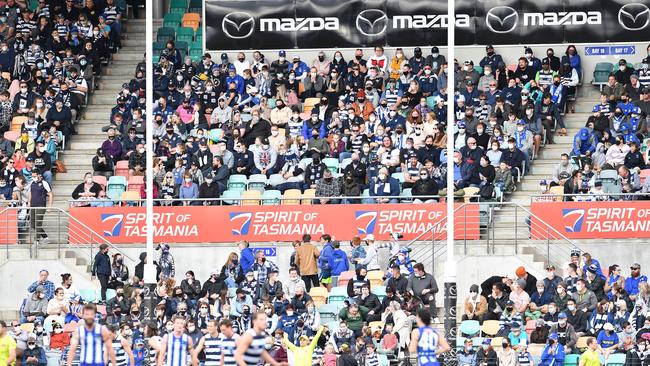
AFL News
Don't miss out on the headlines from AFL News. Followed categories will be added to My News.
Colin Carter says he has emphatically made the case for a 19th AFL licence, adamant critics of his report in Tasmanian football have missed its key recommendation.
Carter on Friday said it would have been pointless for the AFL to ask club presidents to vote on a new side in coming months given the certainty they would not pass a resolution.
Writing in an exclusive column in News Corp, he said the vast majority of his 22-page report states the case for a 19th licence for the first time in an official AFL report.
He believes the report is a significant step forward for the Tasmanian case for its own AFL team.
He said part of his brief from the AFL and Tasmanian government was to consider relocation and joint ventures, as unpalatable as they might be for any of the AFL’s existing clubs.
But Carter said it was up to the AFL Commission to now approve a 19th team before convincing clubs of the positives of an extra AFL team.
The race to the 2021 Toyota AFL Finals Series is on and every match matters. Watch Live & Ad-Break Free on Kayo. New to Kayo? Try 14-days free >
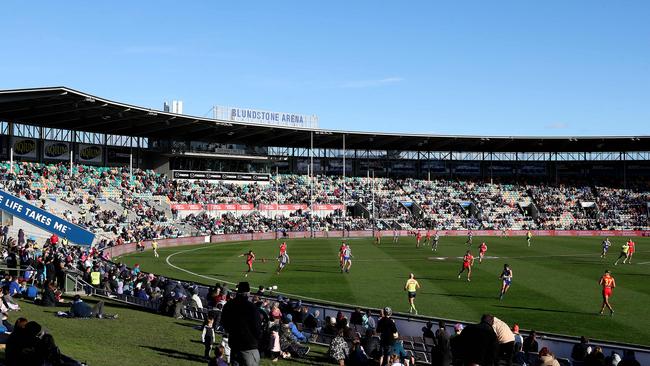
“Regrettably, this past week has been marked by attacks on the report — rarely for its content and mostly for failing to include timelines,” he writes.
“It is like having a fight about setting a wedding date before even agreeing to get married.
“The unresolved issue is not about timelines but whether Tasmania should even have a team. My report unequivocally says ‘yes’. What got lost this week was that stunning step forward for Tasmania. For the first time, the AFL agreed that Tasmania should have a licence.
“I am hopeful that the clubs will support the proposal provided care is taken to work through the business case with them and to methodically and carefully address any lingering issues or doubts they might have. Their support cannot and should not be taken for granted.”
AFL chief executive Gillon McLachlan said on Friday he maintained a strong relationship with Tasmanian premier Peter Gutwein, who has threatened to pull all funding for the AFL until there is a timeline for the new team.
“He is a good fellow. I rang him yesterday. We will continue to talk to the Tasmanian government and the premier about what he wants and in the context of the Carter report what works for the industry as well.”
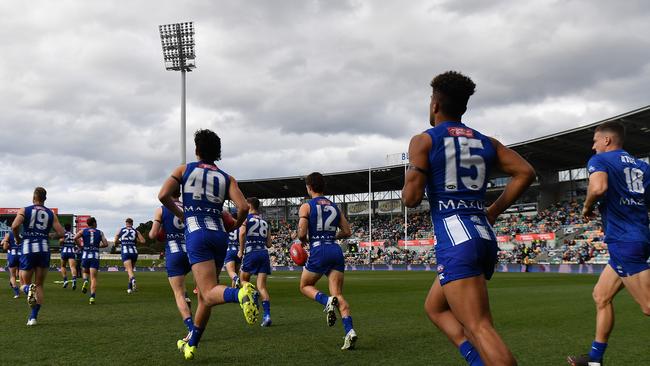
Colin Carter’s personal response
Author of the Carter report into a Tasmanian AFL team
It is a week now since my report on Tasmania’s case for an AFL Licence was made public and much of the ongoing debate has been disappointing.
My report emphatically supports Tasmania being represented in our national AFL competition, even as a 19th licence.
For the first time, the AFL has publicly endorsed this position.
What many are missing is understanding of the issue that must be solved before Tasmania can get a team. And so, let’s start with two unassailable facts:
Fact 1: There have been many reports arguing the case for Tasmania
Fact 2: Tasmania does not have a team
It doesn’t take much insight to see that the issue here is that those who make the decision — the AFL Commission and the AFL clubs — have not in the past been convinced by evidence previously produced.
If starting a team in Tasmania was so clearly in football’s interests, it would have happened long ago.
As Paul Keating famously reminded us, you can back in self-interest every time.
So perhaps the problem is that any case made so far, while convincing to those already supporting a Tasmanian team, has not been convincing to the doubters.
Throughout my work, there were many interviewees who said that they’d love Tasmania to have a licence, but they were unsure that the numbers would stack up.
That the AFL Commission, over the past 35 years since the formation of the national competition, has never once recommended this step to the clubs is a sure sign that it too has never been convinced.
As I started this project, several AFL club presidents told me that they believed that the AFL presidents, if asked to vote now, would vote the Tasmanian case down because not enough were convinced that the numbers work.
Any understanding of how these things work makes it obvious that the most important — and difficult — task is to persuade those who will make the final decision.
While my report is unequivocal in its view that Tasmania should have a team, it can’t have a team until the Commission and the majority of the presidents decide it will have a team.
Early in my project, it became clear to me that the Tasmania case could be justified, even on economic grounds.
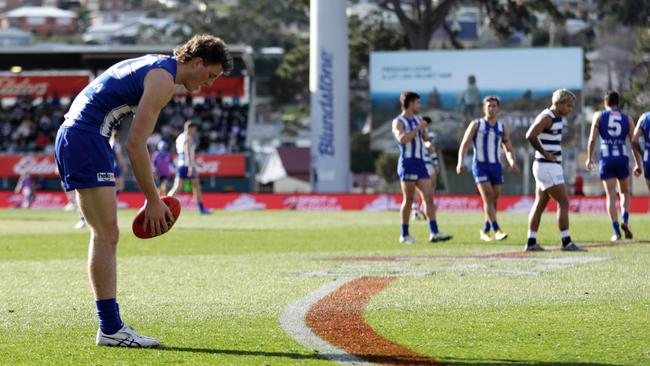
And so, around 20 of the 22 pages in my report are devoted to demolishing the common arguments against a Tasmanian licence and, importantly, showing that the business case for Tasmanian passes the test — economic and pub. I have used economic and business arguments to refute the usual commercial doubts about Tasmania’s case.
Based on some early feedback from hard-nosed commercial realists, there is a real chance that I have been successful in that endeavour.
My Terms of Reference from the AFL also asked that I make comment about other options, including a relocation. Briefing materials from the Tasmanian Premier’s office also included comment on potential relocation as a consideration. The joint-venture idea was floated during the project which meant some obligation that I consider it.
I was very clear in the report that a 19th Licence is recommended if these other options fell over.
Regrettably, this past week has been marked by attacks on the report — rarely for its content and mostly for failing to include timelines.
It is like having a fight about setting a wedding date before even agreeing to get married.
The unresolved issue is not about timelines but whether Tasmania should even have a team.
My report unequivocally says ‘yes’.
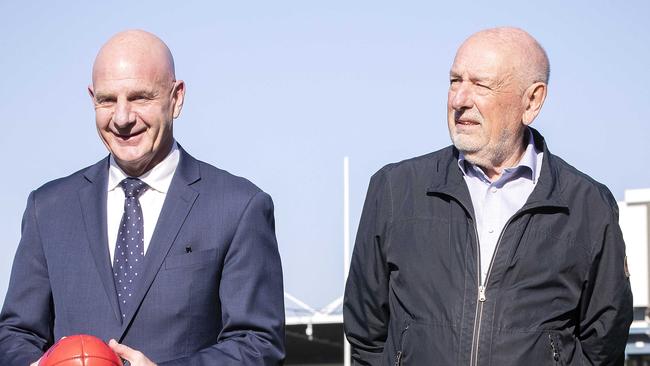
What got lost this week was that stunning step forward for Tasmania. For the first time, the AFL agreed that Tasmania should have a licence! That is huge progress, but the next difficult steps are still to take place.
After discussions with the Tasmanian Government as to its unwavering economic support for a team, we must then persuade most of the 18 clubs to support a new licence at a time when Covid is placing their finances under huge stress.
I am hopeful that the clubs will support the proposal provided care is taken to work through the business case with them and to methodically and carefully address any lingering issues or doubts they might have. Their support cannot and should not be taken for granted.
A relocation, even if unlikely, would be readily supported by the clubs because it maintains the competition at 18 teams.
The much more challenging issue facing our code’s decision makers is whether a 19th licence can be justified.
My hope is that my report has adequately answered that question.
To repeat, for those who have not read the report, or digested its arguments, the answer is ‘yes’.
Colin Carter, a former Geelong Football Club president and AFL commissioner, is author of the Carter Report into a Tasmanian AFL team.




